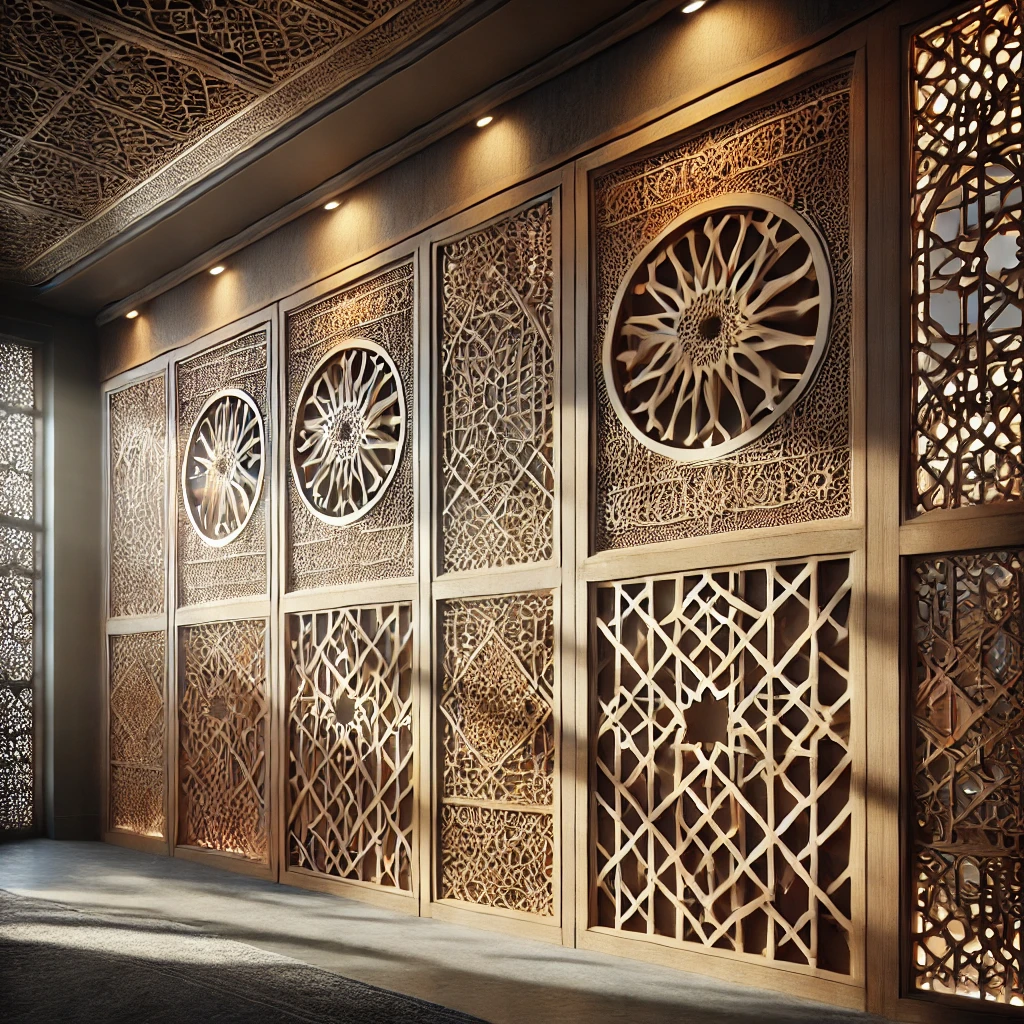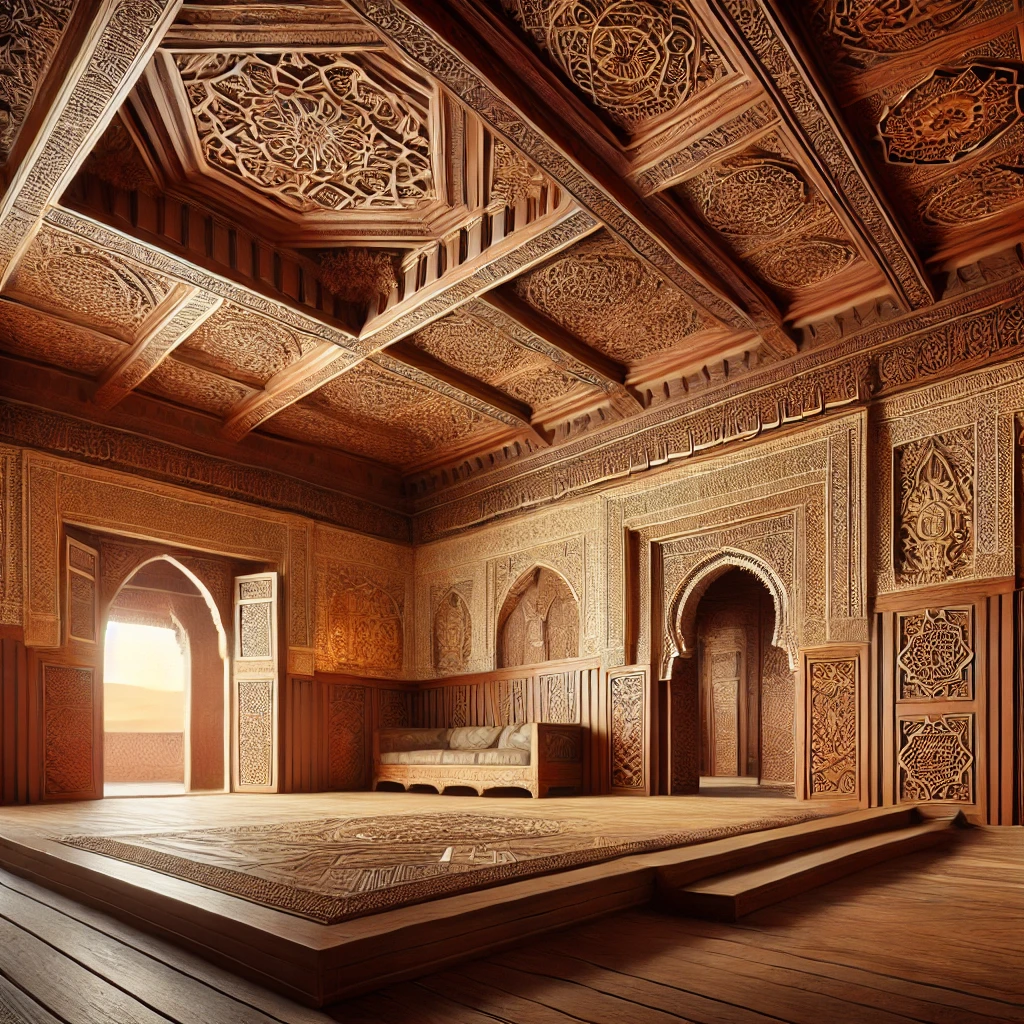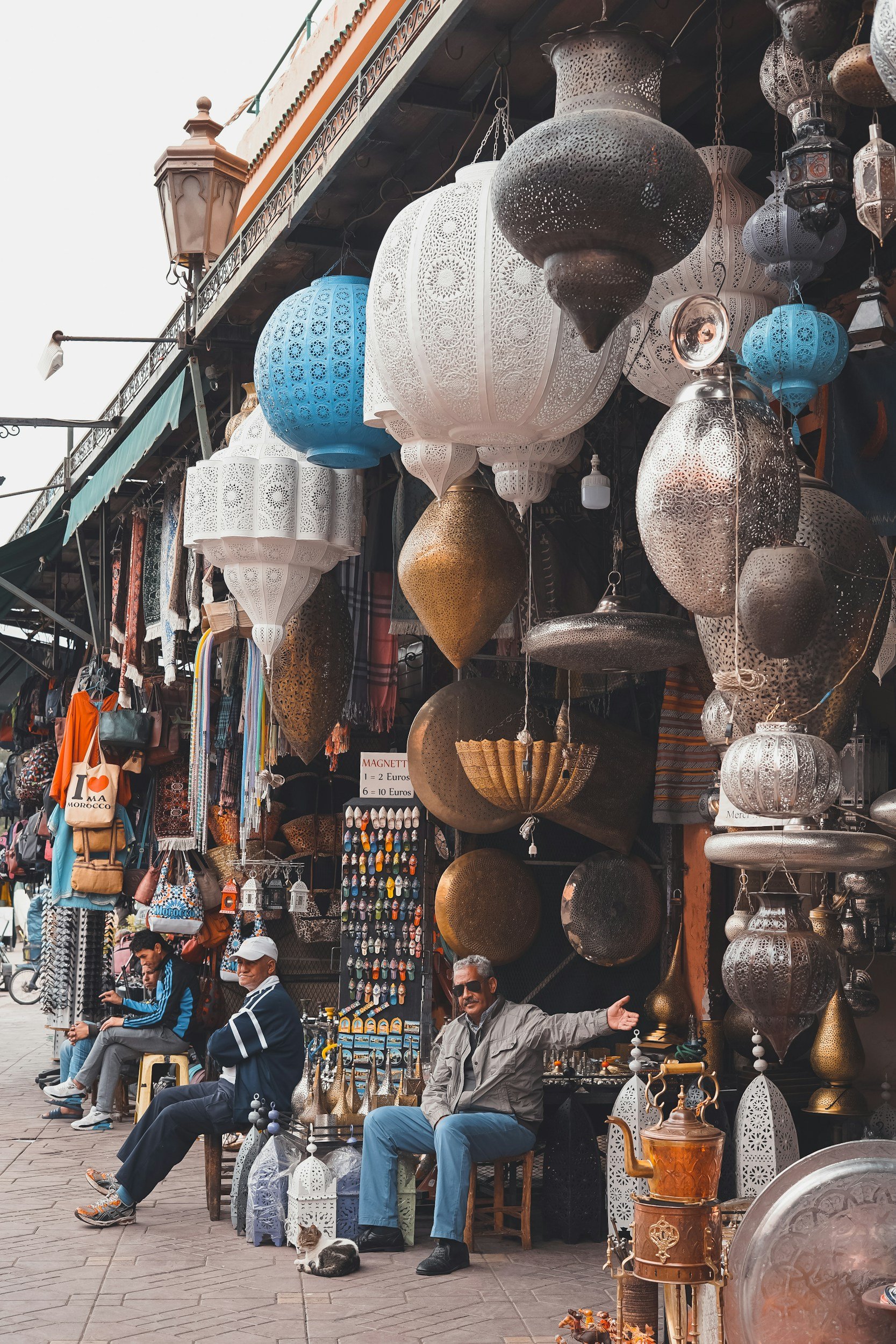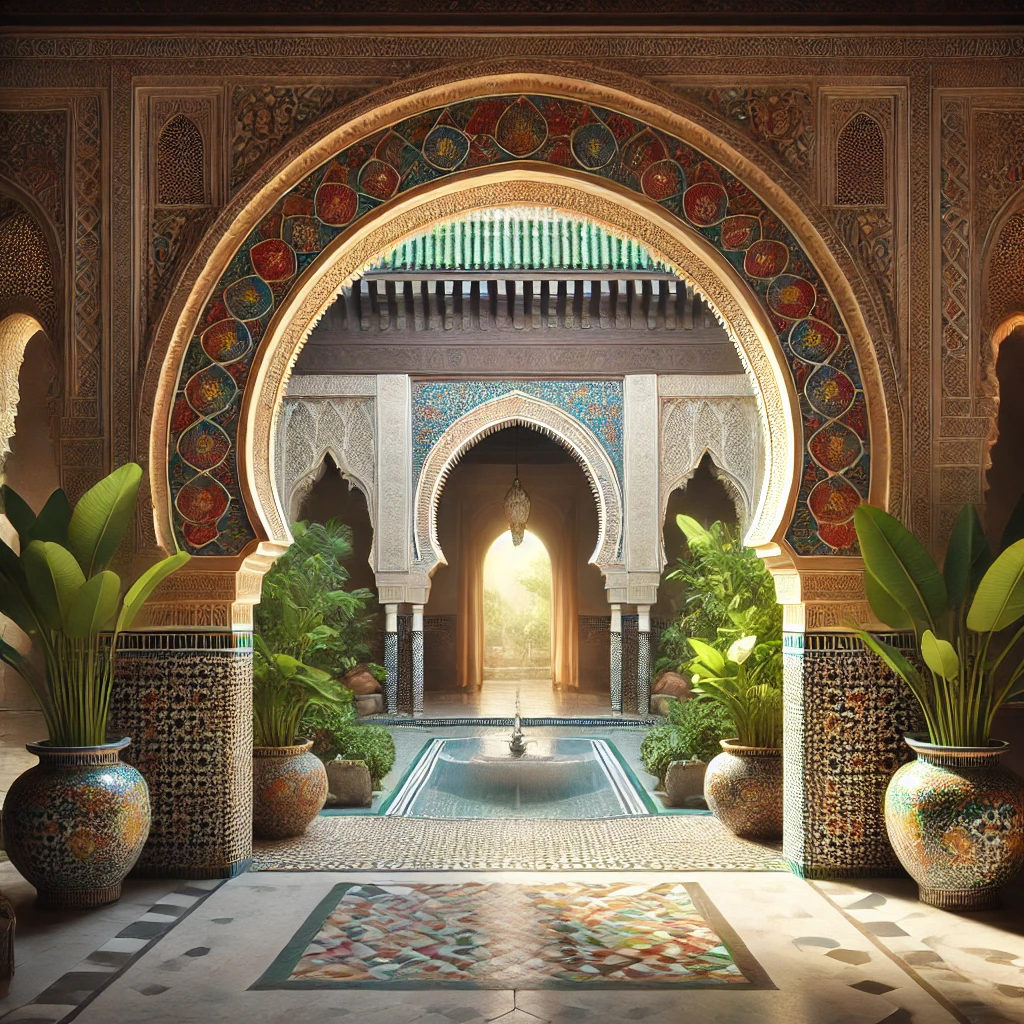
Integrating Moucharabieh Screens in Modern Homes
Moucharabieh screens, also known as lattice or mashrabiya screens, are a signature element of Moroccan architecture. Traditionally used for privacy and airflow, these intricately carved wood or metal screens add a sense of elegance, cultural heritage, and depth to any space. In modern design, moucharabieh screens are making a comeback—not just for their visual appeal, but also for their ability to blend privacy, light, and aesthetics seamlessly.

Carved Cedarwood in Moroccan Interiors
Moroccan interiors are renowned for their intricate beauty and artistic detail, and one of the most captivating elements that contribute to this unique charm is carved cedarwood. From ornate ceilings to beautifully designed doors, carved cedarwood is a hallmark of traditional Moroccan craftsmanship that brings warmth, elegance, and a deep sense of cultural heritage to any space. The use of cedarwood in Moroccan homes is not just about aesthetics; it’s about preserving an art form that has been passed down through generations, blending functionality with artistry.

Handcrafted Moroccan Lighting: Bringing Traditional Fixtures into Your Home
Handcrafted Moroccan lighting is known for its warmth, intricate designs, and the captivating way it plays with light and shadow. These traditional fixtures, often made from brass, copper, or iron, are a testament to the artistry and craftsmanship that has been passed down through generations in Morocco. Incorporating Moroccan lighting into your home allows you to bring a touch of culture, craftsmanship, and a unique aesthetic that transforms your space into a warm, inviting retreat.

Moroccan Arches and Doorways: Key Elements of Traditional Architecture
Moroccan architecture is a captivating blend of influences—Islamic, Berber, Moorish, and Andalusian—that has evolved over centuries. Among the most distinctive features of this rich architectural tapestry are the arches and doorways. These elements not only serve structural purposes but also convey cultural depth, historical influences, and the artistry that defines Moroccan design. Whether found in a grand palace or a modest riad, Moroccan arches and doorways bring a sense of elegance, warmth, and a connection to the country’s heritage.

Understanding Moroccan Riads: Architecture and Cultural Significance
A riad is a traditional Moroccan home—it is an embodiment of culture, history, and architectural artistry that makes Morocco unique. Originally built as private residences for wealthy families, riads are designed to create a peaceful sanctuary in the midst of the bustling medina. Understanding the architectural elements and cultural significance of riads helps to appreciate why they remain highly sought after for both residential and hospitality purposes today.
